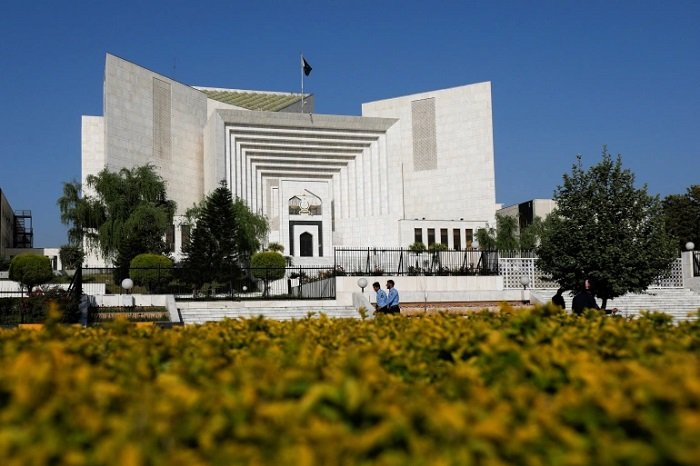ISLAMABAD/RAWALPINDI: Asad Umar, the secretary general of the PTI, argued before the Supreme Court on Monday that the Election Commission of Pakistan (ECP), which is neither a court nor a tribunal, has no business summoning someone for violating court regulations.
Anwar Mansoor, the counsel of Asad Umar in a reply argued that the Supreme Court must first decide whether Section 10 of the 2017 Election Act, which grants the commission, its chairman, and its members the authority to serve as judges, is permissible in light of Articles 204 and 175A of the Constitution as well as decisions by the Supreme Court holding that the ECP is neither a court nor a tribunal.
The reply was submitted a day ahead of the scheduled hearing of ECP’s petition by a three-judge SC bench headed by Chief Justice of Pakistan (CJP) Umar Ata Bandial. The ECP has requested the apex court to consolidate and transfer all six challenges pending before different high courts to its contempt notices against PTI leaders instead of defending the commission’s stance for issuance of contempt charges against PTI leaders in different high courts.
The reply was submitted a day ahead of the scheduled hearing of ECP’s petition by a three-judge SC bench headed by Chief Justice of Pakistan (CJP) Umar Ata Bandial. The ECP has requested the apex court to consolidate and transfer all six challenges pending before different high courts to its contempt notices against PTI leaders instead of defending the commission’s stance for issuance of contempt charges against PTI leaders in different high courts.
However, instead of appearing before the ECP, the PTI leaders challenged in different high courts the ECP notices and contempt proceedings on the grounds that Section 10 of the Elections Act 2017, which is the statutory provision regarding the commission’s power to punish for contempt, was against the Constitution.

In his reply before the apex court, Asad Umar argued that implementation of Section 10 of the Elections Act would amount to an action detrimental to life, liberty, body and reputation and also to acting in a manner prohibited by the Constitution.
The reply described the ECP contempt notice as oppressive and, therefore, illegal being arbitrary and capricious and bad in law. Asad Umar requested the apex court to suspend the contempt notice against him during the pendency of the petition moved by the ECP as well as restrain the commission from taking any further action or proceedings in the contempt matter during the pendency of the case.


